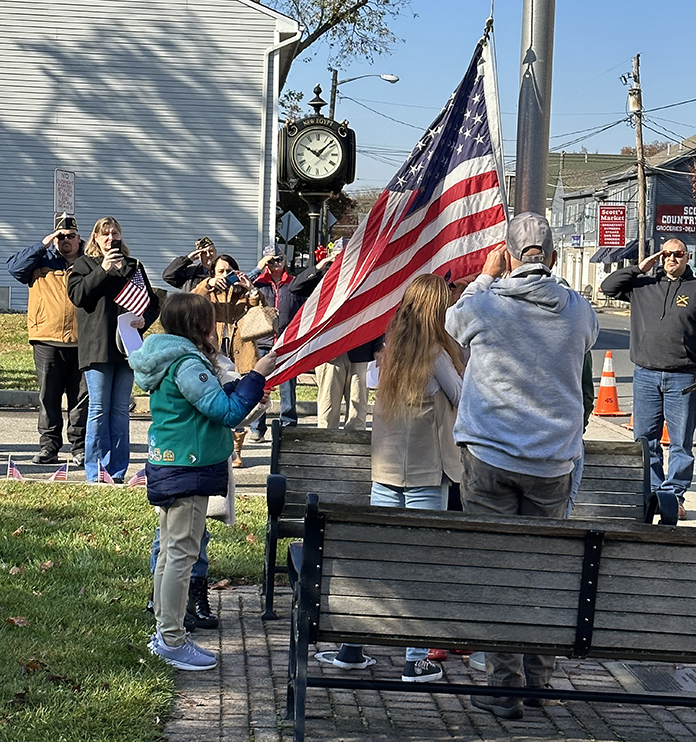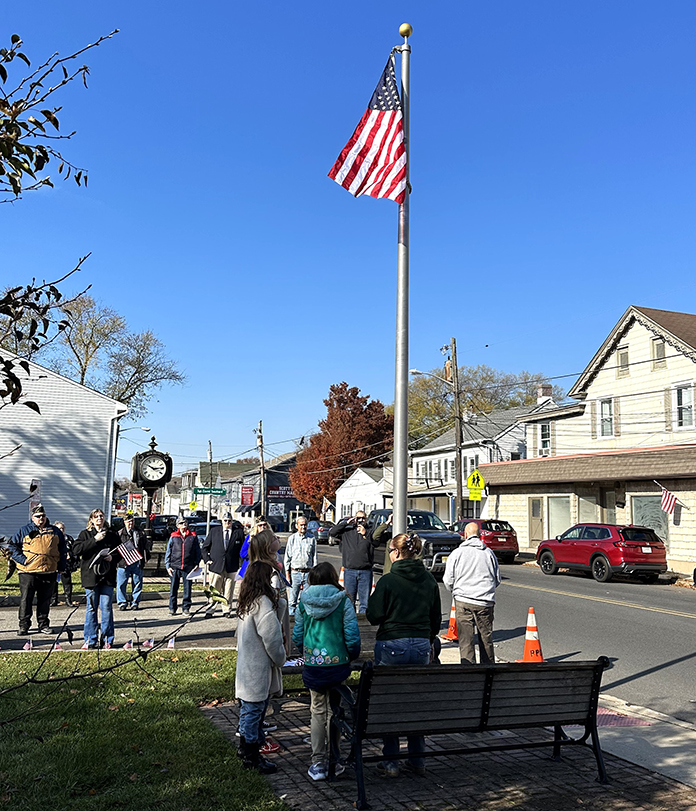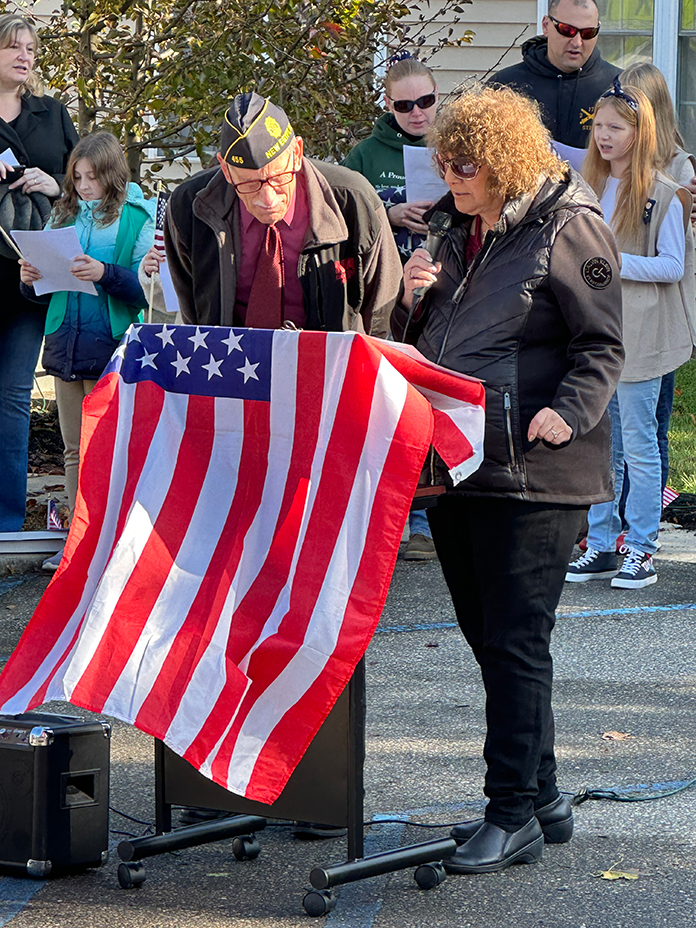
PLUMSTED – Residents, dignitaries and other guests came together in commemoration of U.S. servicemembers who were victims of the tragic Beirut bombing of a peacekeeping force 40 years ago.
The ceremony also served to honor all veterans of the nation and was held at Sgt. David Southard Plaza on Main Street.
Township Committeeman Leonard Grilletto, wearing the same uniform he wore while he was in the service, spoke about the grim anniversary and the plaque that honored the fallen members of the Armed Forces in Beirut, Lebanon.
Other speakers at the Veterans Day event included Pastor Genever Vinson of Vision of Promise Ministry on Magnolia Avenue, New Egypt; a representative of Congressman Christopher Smith’s office, 12th District Assemblymen Alex Sauickie and Rob Clifton, Mayor Robert Bowen, American Legion Post #455 Commander Jennifer Duffield; and Past American Legion Department of New Jersey Vice Commander Anthony L. Gladden.

Local Girl Scout Troop members lowered a retired American flag and raised a new one during the ceremony. The Pledge of Allegiance and the Gettysburg Address was recited with the uncovering of the flags of the U.S. Coast Guard and Space Force.
Flags and pens commemorating this event were distributed to the large crowd that was in attendance in the plaza. The ceremony was part of the Township Committee’s Pride in Plumsted program.
Grilletto stated that a separate date will be scheduled by the County Cultural and Heritage Commission to celebrate the placement of a plaque for Thomas Chafey, an American Revolutionary War veteran buried at the Zion Cemetery on Route 528.
The history behind the 299 lives lost in the Beirut barracks terrorist bombing attacks against U.S. and French armed forces in Beirut on October 23, 1983 was reviewed.
The attacks took place amid the sectarian conflict of the Lebanese civil war (1975–90) and hastened the removal of the international peacekeeping force from Lebanon in February 1984.
This multinational peacekeeping force was made up of troops from the United States, France and Italy. They arrived in Lebanon in August 1982 as part of a cease-fire agreement signed by Israel and the Palestine Liberation Organization (PLO).

While the situation appeared to have stabilized by early 1983, violence broke out on April 18, 1983, when a car bomb destroyed the U.S. embassy in West Beirut, killing dozens of American foreign service workers and Lebanese civilians.
On October 23, 1983, a dump truck packed with an estimated 12,000 pounds of explosives crashed through the front gates of the U.S. Marine barracks in Beirut. The 241 marines and sailors who died in the explosion represented the largest loss of life in a single day for the U.S. Marine Corps since the Battle of Iwo Jima in 1945.
A second suicide bomber drove into the barracks of a French paratrooper detachment in West Beirut resulting in an explosion that toppled the building. The 58 soldiers that were inside the building were killed. Within four months, elements of the multinational force started to withdraw to ships offshore, and the last of the U.S. Marines left Beirut on February 26, 1984.






